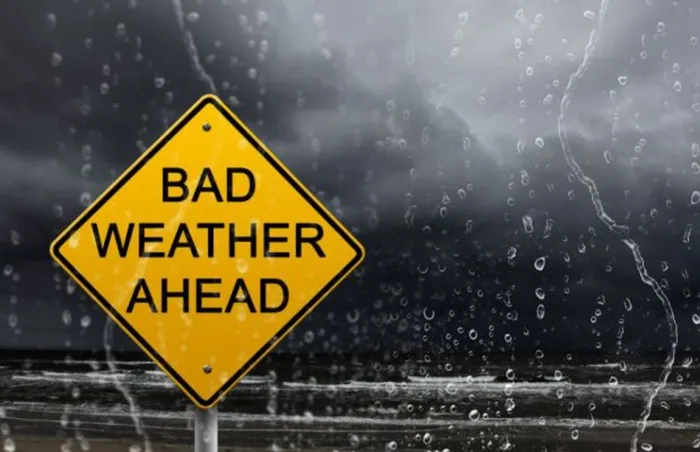Extreme cold front sweeps across South Africa: Warnings issued nationwide
COLD WEATHER

In a televised weather update, SAWS meteorologists warned that the cold front could lead to localised flooding, road closures, and power outages due to storm damage. Several weather alerts have already been issued, particularly for the Western and Eastern Cape, where the heaviest rainfall is expected.
Image: File
South Africans are being urged to brace for a major cold snap as a powerful cold front makes landfall, bringing icy temperatures, heavy rain, and widespread weather disruptions across the country.
The South African Weather Service (SAWS) has confirmed that a low-pressure system is moving through the nation, affecting every province except Limpopo.
The system, which began impacting the Western Cape on Saturday evening, is expected to intensify in the coming days.
According to SAWS, extreme weather conditions — including heavy rainfall, strong winds, and unseasonably low temperatures — will extend to the Eastern Cape, Free State, Northern Cape, and parts of Gauteng and KwaZulu-Natal. Temperatures in some areas are forecast to remain below 10°C even during the day.
In a televised weather update, SAWS meteorologists warned that the cold front could lead to localised flooding, road closures, and power outages due to storm damage. Several weather alerts have already been issued, particularly for the Western and Eastern Cape, where the heaviest rainfall is expected.
Cooperative Governance and Traditional Affairs (CoGTA) Minister Velenkosini Hlabisa has called on all provincial and municipal authorities to activate disaster response plans. Speaking at a briefing on Sunday, Hlabisa stressed the importance of readiness."We are urging all local governments to be on high alert and ensure emergency services are adequately staffed and equipped.
This cold front poses serious risks, particularly to vulnerable communities," Hlabisa said. The minister also appealed to citizens to take extra precautions, especially those living in informal settlements or flood-prone areas.
Residents are advised to secure their homes, avoid unnecessary travel, and keep emergency supplies at hand.
Public facilities such as community halls and shelters may be opened to accommodate those most at risk during the cold spell, including the homeless and elderly.
In the Western Cape, officials have already begun monitoring key infrastructure and activating shelter programs.
Provincial disaster management teams are coordinating with weather services to track the system’s movement and issue updates.
With winter tightening its grip, authorities are urging the public to stay informed through official weather alerts and updates.
The cold front is expected to persist through the early part of the week before conditions gradually stabilize.